|
|
|
|
Thermal & Fluids Analysis Workshop (TFAWS)
Analysis Excellence from the Ground Up – and Beyond!
July 29 - August 2, 2013 • Embry-Riddle Aeronautical University, Daytona Beach, FL
|
|
|
|
|
|
Monday Evening Reception: Robert Cabana (KSC Center Director)
Monday Evening Reception: Dr. Maj Mirmirani (Dean Of College Of Engineering, Embry-Riddle Aerospace Engineering)
Keynote Wednesday Banquet: Jeff Thornburg (Principal Propulsion Engineer, Space Exploration Technologies Corp.)
Monday Luncheon: Ray Lugo (Director, UCF Florida Space Institute)
Tuesday Luncheon: Ed Mango (Program Manager, NASA Commercial Crew Program)
Wednesday Luncheon: Bernard Kutter (Manager, Advanced Programs ULA)
Thursday Luncheon: Dr. Tasos Lyrintzis (Department Chair, Embry-Riddle Aerospace Engineering)
|
|
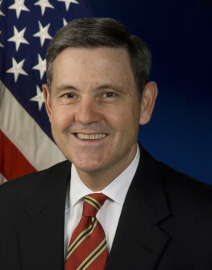 Robert D. Cabana, a former NASA astronaut, currently serves as the tenth director of NASA's John F. Kennedy Space Center in Florida. In this role, Cabana manages all NASA facilities and activities at the spaceport, including the team of civil service and contractor employees who operate and support numerous space programs and projects.
Robert D. Cabana, a former NASA astronaut, currently serves as the tenth director of NASA's John F. Kennedy Space Center in Florida. In this role, Cabana manages all NASA facilities and activities at the spaceport, including the team of civil service and contractor employees who operate and support numerous space programs and projects.
Born in Minneapolis, Minn., Cabana graduated from the U. S. Naval Academy in 1971 with a bachelor's degree in mathematics. He was commissioned a second lieutenant in the U.S. Marine Corps and completed Naval Flight Officer training in Pensacola in 1972. Cabana then served as an A-6 bombardier/navigator with Marine Air Wings in Cherry Point, N.C., and Iwakuni, Japan.
Returning to Pensacola in 1975, Cabana began pilot training and was designated a naval aviator in September 1976, earning the Daughters of the American Revolution award as the top Marine to complete flight training that year. He graduated with distinction from the U.S. Naval Test Pilot School in 1981 and served in the Flight Systems Branch at the Naval Air Test Center until 1984. During his career, Cabana has logged over 7,000 hours in 45 different kinds of aircraft.
Cabana was selected as an astronaut candidate in June 1985 and completed his initial astronaut training in July 1986. He was assigned to the Lyndon B. Johnson Space Center Astronaut Office, serving in a number of leadership positions, including lead astronaut in the Shuttle Avionics Integration Laboratory; Mission Control Spacecraft Communicator, famously known as CAPCOM; and chief of NASA's Astronaut Office.
A veteran of four spaceflights, Cabana has logged 38 days in space, serving as the pilot on STS-41 and STS-53 and mission commander on STS-65 and STS-88. His fourth flight was the first assembly mission of the International Space Station in December of 1998. Following his retirement as a colonel from the Marine Corps in September 2000, Cabana was appointed a member of the Federal Senior Executive Service. He served in numerous challenging senior management positions at Johnson Space Center in Houston, ultimately becoming deputy director.
In October 2007, Cabana was appointed director of NASA's John C. Stennis Space Center in Mississippi. A year later he was reassigned as the tenth director of the John F. Kennedy Space Center.
Cabana's many achievements have been recognized with induction into the Astronaut Hall of Fame and being named an Associate Fellow in the American Institute of Aeronautics and Astronautics. He has received numerous personal awards and decorations, including the Distinguished Flying Cross, the Presidential Distinguished Rank Award, and the National Space Club Florida Committee's Dr. Kurt H. Debus Award. He is also a Fellow in the Society of Experimental Test Pilots.
He is married to the former Nancy Joan Shimer of Cortland, N.Y. They have three grown children.
|
|
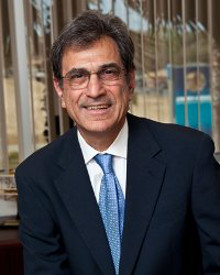 Dr. Maj Mirmirani has been the Dean of the College of Engineering at Embry-Riddle Aeronautical University at Daytona Beach Florida since 2007. Prior to joining ERAU, Dr. Mirmirani was a professor of Mechanical Engineering at California State University, Los Angeles. In addition to serving as the chair of the department for many years, he was the director of the Multidisciplinary Flight Dynamics and Control Laboratory, which he founded in 2000 and was funded by the Air Force Office of Scientific Research, NASA Dryden Flight Research Center, Jet Propulsion Laboratory, and the National Science Foundation.
Dr. Maj Mirmirani has been the Dean of the College of Engineering at Embry-Riddle Aeronautical University at Daytona Beach Florida since 2007. Prior to joining ERAU, Dr. Mirmirani was a professor of Mechanical Engineering at California State University, Los Angeles. In addition to serving as the chair of the department for many years, he was the director of the Multidisciplinary Flight Dynamics and Control Laboratory, which he founded in 2000 and was funded by the Air Force Office of Scientific Research, NASA Dryden Flight Research Center, Jet Propulsion Laboratory, and the National Science Foundation.
Dr. Mirmirani has a multidisciplinary background and interest in engineering, and a solid record of research in modeling, simulation and control of complex aerospace systems. His most notable contribution includes his internationally recognized research on modeling and control of airbreathing hypersonic vehicles, and the development of one of the first unmanned aerial aircraft powered by a hydrogen fuel cell.
Dr. Mirmirani has been the PI or the Co-PI of funded research projects including two NASA Phase I and II STTR projects. He has served on the Board of Directors of SoloPower Inc. in San Jose, California and on the Board of Advisors for the Science and Engineering Programs at the East Los Angeles Community College. Currently he is serving on the Florida FIRST Executive Advisory Board and the Air Force Fleet Viability Senior Board Advisors. Dr. Mirmirani holds a Master of Science and a PhD in Mechanical Engineering from the University of California at Berkeley and a BS in Mechanical Engineering from Amir Kabir University in Tehran.
Dr. Mirmirani is a Fellow of the American Society of Mechanical Engineers (ASME), and an Associate Fellow of the American Institute of Aeronautics and Astronautics (AIAA). He is an instrument rated private pilot and a member of the Aircraft Owners and Pilot Association (AOPA).
|
|
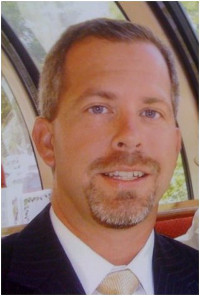 Jeff Thornburg is a principal propulsion engineer at SpaceX in Hawthorne, CA and serves as the lead engineer and manager of methane engine systems including the Raptor engine development program. Jeff is responsible for the development of the propulsion hardware and facilities to lead SpaceX into the next generation of vehicles and propulsion to enable missions beyond Earth with an eye toward Mars. Jeff is also presently very active in the development of the Falcon Heavy Vehicle.
Jeff Thornburg is a principal propulsion engineer at SpaceX in Hawthorne, CA and serves as the lead engineer and manager of methane engine systems including the Raptor engine development program. Jeff is responsible for the development of the propulsion hardware and facilities to lead SpaceX into the next generation of vehicles and propulsion to enable missions beyond Earth with an eye toward Mars. Jeff is also presently very active in the development of the Falcon Heavy Vehicle.
Prior to joining SpaceX, Jeff was a lead propulsion engineer and turbomachinery technical project manager for the J-2X engine development program at the NASA Marshall Space Flight Center. Recently, the J-2X project has successfully tested both Engine 10001 and 10002 which utilized turbomachinery designed and built during Jeff’s tenure on the J-2X program. Before joining NASA, Jeff spent 4 years working for Aerojet as an engineering director for their liquid engine turbomachinery group and serving as the site manager for the Aerojet-Woodland Hills engineering office in Woodland Hills, CA.
Jeff started his career in the U.S. Air Force and served as a flight commander and aircraft maintenance officer on KC-135R tanker aircraft at MacDill AFB, FL. He was then selected to attend the Air Force Institute of Technology and earned his Master’s degree in Aeronautical Engineering. Jeff was then stationed at Edwards AFB, CA where he joined the liquid rocket engine branch at the Air Force Research Laboratory and worked several component and engine technology programs that included his leadership of the joint Air Force-NASA Integrated Powerhead Demonstration engine which was the world’s first hydrogen full-flow staged combustion cycle engine demonstration. Since his first assignment to Edwards AFB, Jeff has been very fortunate to have a career that has associated him with almost all liquid engine technology development programs since the development of the Space Shuttle Main Engine.
Jeff has received numerous Air Force and NASA awards including a NASA Space Flight Awareness award, the NASA “Made It Happen” award, the NASA Stennis Space Center Propulsion Test Director’s Leadership Award, and was an Air Force Research Laboratory Technical Program Manager of the Year. Jeff and his wife, Jessica, live in El Segundo, CA with their daughter Jameson.
|
|
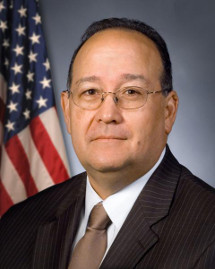 Ray serves as the Director of UCF’s Florida Space Institute. Prior to this appointment, he served as Director of the National Aeronautics and Space Administration’s John H. Glenn Research Center from 2010 to 2013. There he was responsible for planning, organizing and directing the activities required in accomplishing the missions assigned to the Center. Prior to this appointment, he served as Glenn’s Deputy Director from 2007 to 2010.
Ray serves as the Director of UCF’s Florida Space Institute. Prior to this appointment, he served as Director of the National Aeronautics and Space Administration’s John H. Glenn Research Center from 2010 to 2013. There he was responsible for planning, organizing and directing the activities required in accomplishing the missions assigned to the Center. Prior to this appointment, he served as Glenn’s Deputy Director from 2007 to 2010.
Prior to his positions at Glenn, Lugo served as the Deputy Program Manager of the Launch Services Program at NASA’s Kennedy Space Center and was principally responsible for managing, directing and evaluating the progress of all ongoing launch operations and activities including Expendable Launch Vehicles engineering and analysis, payload integration, launch site support and launch campaigns.
Lugo began his NASA career at Kennedy in 1975 as a cooperative education student. His first assignment was in the Construction and Modifications Branch as an engineer responsible for construction modifications to Launch Complex 39A in preparation for the first space shuttle launch.
Since becoming a member of the Senior Executive Service in 2001, he served as the executive director of the Cape Canaveral Spaceport Management Office. Other leadership positions include Director and Deputy Director of Expendable Launch Vehicle Services Program, Manager of Facilities and Support Equipment Division in the Space Station Project Office, and Chief of the Business Office of the Joint Performance Management Office.
Lugo has received numerous honors, including two NASA Exceptional Achievement Medals for contributions to the Galileo Mission and the Space Station Redesign, and three NASA Outstanding Leadership Medals for his instrumental role in the Expendable Launch Vehicle Program Transition.
Lugo earned a Bachelor of Science in engineering in 1979 from the University of Central Florida and a Master’s Degree in engineering management in 1982 from the Florida Institute of Technology.
|
|
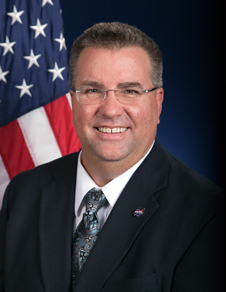 Edward J. Mango serves as the program manager for the Commercial Crew Program (CCP) at NASA's Kennedy Space Center in Florida.
Edward J. Mango serves as the program manager for the Commercial Crew Program (CCP) at NASA's Kennedy Space Center in Florida.
The Commercial Crew Program is leading NASA's efforts to develop the next United States capability for crew transportation and rescue services to and from the International Space Station (ISS) and other low-Earth orbit destinations by the middle of the decade. The outcome of this capability is expected to stimulate and expand the U.S. space transportation industry.
As program manager, Mango leads approximately 200 people, with almost half involved in the work at other NASA centers.
In 2009, Mango served as the launch director for Ares I-X, the Constellation Program's first flight test. He was responsible for the management and direction for the prime launch team and the launch support team. In addition, he was the leader of the launch authority team, which was responsible for programmatic authority to perform the launch and flight test.
In the fall of 2008, Mango was assigned as director of the Constellation Space Transportation Planning (CSTP) Office at Kennedy where he was responsible for the development of a new program effort to operate and sustain the Constellation systems to the International Space Station. That assignment included the role of associate program manager for Operations and Sustaining for the Constellation Program.
Mango joined NASA at Kennedy in 1986 after serving in the U.S. Air Force at Vandenberg Air Force Base in California. He has held numerous positions, including shuttle project engineer, deputy director for Shuttle Process Engineering, and shuttle launch manager. Mango supported the shuttle launch team for more than 50 launches, including more than a dozen as assistant launch director.
He also served as the recovery director for shuttle Columbia's debris recovery effort in east Texas. During the Return to Flight period, Mango was assigned to NASA's Johnson Space Center in Houston as deputy manager of the Orbiter Project Office. There, Mango was responsible for directing the development, production, test and supportability of the space shuttle fleet in a $750 million per year effort.
During his career with NASA, Mango has earned numerous awards, including the Exceptional Service Medal, Outstanding Leadership Medal, Certificate of Achievement, Center Director's Award, and most recently, the Rotary National Award for Space Achievement Stellar Award.
Mango earned his Bachelor of Science in aerospace engineering in 1981 from Parks College of Saint Louis University in Missouri and Master of Science in engineering from the University of Central Florida in Orlando, Fla.
|
|
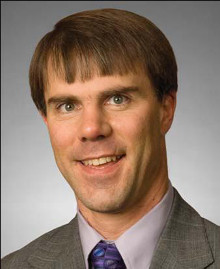 Bernard Kutter is the manager of advanced programs for United Launch Alliance, which includes research into launch technologies enabling very heavy payloads, long mission duration, and challenging destinations. Before this, he led the development of the Atlas booster capability evolution, including in-space applications.
Bernard Kutter is the manager of advanced programs for United Launch Alliance, which includes research into launch technologies enabling very heavy payloads, long mission duration, and challenging destinations. Before this, he led the development of the Atlas booster capability evolution, including in-space applications.
In 1994, Bernard assumed management of the Atlas Centaur thermodynamics group and was involved in 67 successful missions. Previously, he had moved into the space business with General Dynamics and was involved with the development of cryogenic fluid management techniques for the Titan IV Centaur stage, including the first successful launch.
Bernard started his career with General Electric in the jet engine industry. He received a BS in Aerospace Engineering from the University of Washington in 1987.
|
|
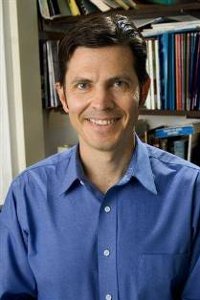 Dr. Lyrintzis joined ERAU in January of 2012 as a Distinguished Professor and chair of the Department of Aerospace Engineering. He was appointed to Purdue (1994-2011) after serving seven years on the faculties of University of Minnesota (1989-94), Cornell (1988-89) and Syracuse University (1987-88). At Purdue he was the School of Aeronautics and Astronautics Associate Head for graduate programs and the Director of Purdue’s Computational Science and Engineering (CS&E) interdisciplinary program.
Dr. Lyrintzis joined ERAU in January of 2012 as a Distinguished Professor and chair of the Department of Aerospace Engineering. He was appointed to Purdue (1994-2011) after serving seven years on the faculties of University of Minnesota (1989-94), Cornell (1988-89) and Syracuse University (1987-88). At Purdue he was the School of Aeronautics and Astronautics Associate Head for graduate programs and the Director of Purdue’s Computational Science and Engineering (CS&E) interdisciplinary program.
Dr. Lyrintzis’ primary research interests are in the area of fluid dynamics with emphasis on numerical methods and applications in aero-acoustics. His research endeavors are currently supported by NSF, NASA, the US Navy, and the US Department of Education. He has co-authored 56 journal papers and 104 conference papers. He has advised or co-advised 15 Ph.D. and 17 M.S. students. Dr. Lyrintzis teaches courses in fluid mechanics, aerodynamics, and aero-acoustics.
In the Fall of 2002, while at Purdue Dr. Lyrintzis received the School’s Teaching Award. Further, Dr. Lyrintzis has received Purdue’s College of Engineering Leadership Award and the School’s CT Sun Research Award. Dr. Lyrintzis is a Purdue University Faculty Scholar, a registered Professional Engineer, an AIAA Associate Fellow, an ASME Fellow, and a Boeing Welliver Fellow. He has been a member of the AIAA Aero-acoustics Technical Committee (vice-chair ‘05-07, chair ‘07-09), the AHS Acoustics Committee, and the ASME Coordinating Group for CFD. He has co-organized the 10th AIAA/CEAS Aeroacoustics Conference and Exhibit, Manchester, UK, as well as several Sessions and Forums in AIAA, ASME and AHS Conferences and he is currently an Associate editor for the AIAA Journal and the International Journal of Aero-acoustics. Finally, Dr. Lyrintzis has participated in the development of award-winning (American Helicopter Society, Howard Hughes Award, NASA Group Achievement Award) TRAC (Tilt-Rotor Aeroacoustic Codes) system of codes from NASA Langley.
|
|
|